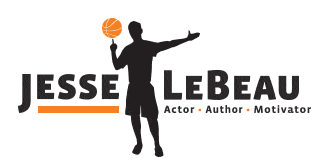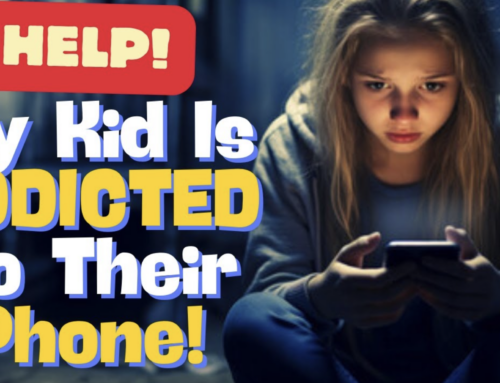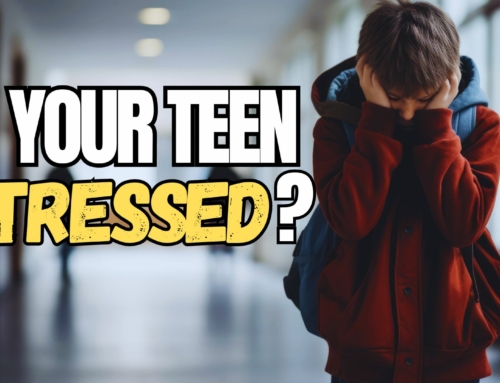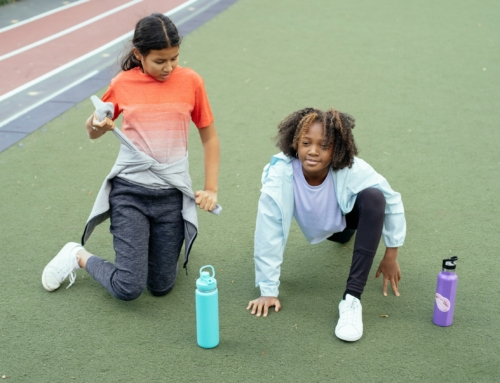Empowering Your Mind: A Guide to Thinking Critically as a Teen
Introduction to Critical Thinking
Hey there, young thinkers! Have you ever stopped to consider how you make decisions or form opinions? It’s something we do every day, often without much thought. But what if you could sharpen your thinking to make smarter choices and challenge the ideas presented to you? That’s where critical thinking comes in, and it’s a skill that’s incredibly valuable for teenagers like you.
What is Critical Thinking?
Critical thinking is the art of analyzing and evaluating information and arguments, questioning their validity, and forming reasoned conclusions. It’s about being an active learner rather than a passive recipient of information. This means not taking every piece of information at face value and instead asking probing questions about its source, context, and implications.
Why Critical Thinking Matters for Teens
As a teenager, you’re at a stage in your life where you’re beginning to form your own views and opinions, separate from your parents, teachers, and other influences. Developing your critical thinking skills can help you navigate this process more effectively, enabling you to make informed decisions about everything from school projects to your social interactions and media consumption.
The Power of a Critical Mindset
A critical mindset isn’t just about academic success; it’s a tool that empowers you to interact more thoughtfully with the world. It helps you detect bias, challenge stereotypes, and avoid jumping to conclusions. More importantly, it lays the foundation for lifelong learning and informed citizenship.
In this blog, we’ll explore how you can develop and enhance your critical thinking skills, apply them to various aspects of your daily life, and overcome the challenges that might arise along the way. So, if you’re ready to elevate your thinking and expand your perspectives, keep reading—we have some exciting insights in store for you!
Core Skills of Critical Thinking
Analyzing Arguments and Claims
One of the foundational skills of critical thinking is the ability to analyze arguments and claims critically. This means not just understanding what is being said but examining how it’s being said and what evidence supports it. To do this, start by identifying the main claim or argument. Ask yourself: What is the speaker or writer trying to convince me of? Next, look for the supporting evidence. Does the evidence logically support the claim? Are there gaps in the logic that need questioning?
Evaluating Evidence and Sources
Not all evidence is created equal. Some sources are more reliable than others, and recognizing this difference is crucial for critical thinking. Teach yourself to evaluate the credibility of sources by considering their origin, purpose, and transparency. For example, academic and peer-reviewed sources are generally more reliable than blog posts or social media content. Also, consider the timeliness of the information; is it current, or is it outdated and potentially irrelevant?
Identifying Biases and Assumptions
Every piece of information comes with biases and assumptions, which can influence how information is presented and interpreted. Critical thinkers strive to identify and question these biases. This involves reflecting on the perspective from which information is presented. Ask questions like: Who benefits from this message? What assumptions are made? How might someone with a different perspective view this?
Expanding the Perspective
To truly enhance your critical thinking, it’s important to seek out and consider multiple perspectives. This doesn’t just reinforce your ability to analyze information critically; it also deepens your understanding of complex issues. Try to understand opposing viewpoints, especially on controversial topics. This approach not only broadens your perspective but also strengthens your arguments by anticipating and addressing counterarguments.
Developing Critical Thinking in Everyday Life
Applying Critical Thinking to School Work
Critical thinking is a powerful tool in the academic setting, enabling you to approach your studies with a deeper level of understanding. When working on school assignments or projects, use critical thinking to assess the validity of your resources and structure your arguments more effectively. For example, when writing an essay, don’t just compile information; analyze the significance of that information and how it supports your thesis. Challenge assumptions in the material you study, ask questions that go beyond the curriculum, and engage in debates with peers to test and refine your viewpoints.
Using Critical Thinking in Social Situations
Social interactions provide a rich ground for applying critical thinking. Whether you’re discussing a controversial issue with friends or evaluating the claims made in a persuasive speech, critical thinking can help you understand the underlying motivations and potential biases in conversations. This skill allows you to navigate social dynamics more effectively, making informed judgments about the relationships you build and the social information you accept as true.
Critical Thinking in Consuming Media
In an age where information is abundant and not always accurate, critical thinking becomes essential in consuming media. Whether it’s news articles, social media feeds, or advertising, always approach the content with a questioning mind. Analyze the intent behind the information presented: Is it trying to sell something, persuade, or inform? Check the credibility of the source and cross-reference information with other reliable sources. This habit not only protects you from misinformation but also helps you develop a more nuanced understanding of the world.
Reflecting on Personal Decisions
Critical thinking isn’t just for external scenarios; it’s also crucial in reflecting on your own decisions and behaviors. Use these skills to evaluate your choices, considering all possible outcomes and the consequences of each decision. This practice can lead to more responsible and thoughtful decision-making, helping you learn from past experiences and plan better for future situations.
Challenges to Critical Thinking
Common Barriers to Critical Thinking
Developing critical thinking skills isn’t always straightforward, especially when faced with challenges that can impede progress. One common barrier is cognitive bias, where pre-existing beliefs or emotional responses cloud judgment. Another obstacle is the influence of groupthink, where the desire for harmony or conformity in a group results in an irrational or dysfunctional decision-making outcome. Teenagers, like adults, can also struggle with overconfidence in their knowledge, leading to a dismissal of important information that contradicts their views.
How to Overcome These Challenges
Overcoming these challenges involves a conscious effort to recognize and adjust your approach to thinking:
-
Question your assumptions: Regularly take time to reflect on your beliefs and where they come from. Challenge yourself to consider why you hold these beliefs and whether they are based on sound reasoning or unexamined biases.
-
Seek diverse perspectives: Actively seek out and engage with people who have different viewpoints from your own. This exposure can help you break out of echo chambers that reinforce existing biases and can promote a more balanced view of issues.
-
Practice intellectual humility: Recognize that you don’t know everything and that your understanding can always improve. This mindset encourages continuous learning and openness to new information.
Maintaining an Open Mind
Keeping an open mind is crucial in nurturing and sustaining critical thinking abilities. It involves being open to changing your mind when presented with new evidence and being receptive to new ideas, even if they challenge your current beliefs. Cultivating an open mind helps you remain adaptable and receptive to learning, key traits of a proficient critical thinker.
Encouraging Healthy Skepticism
Healthy skepticism is a vital component of critical thinking. It involves not taking information at face value without questioning its validity but also not dismissing new information outright without due consideration. Teach yourself to balance skepticism with openness, ensuring that your critical faculties are constructive and not merely dismissive.
Enhancing Your Critical Thinking Skills
Practical Exercises to Boost Critical Thinking
To actively improve your critical thinking skills, try engaging in specific exercises that challenge your analytical abilities:
-
Debate: Participate in or watch debates on various topics. Try to understand each side’s arguments and consider what makes an argument effective or flawed.
-
Analysis of Everyday Decisions: Regularly take a moment to analyze the decisions you make, big or small. Reflect on why you made them, what information influenced you, and how you might improve your decision-making process.
-
Problem-Solving Scenarios: Engage in or create problem-solving scenarios that require thoughtful solutions. This can be done through puzzles, strategy games, or real-life challenges that require you to weigh different options and outcomes.
Tools and Resources for Further Learning
There are many resources available that can help you develop your critical thinking skills:
-
Books: Consider reading books that focus on critical thinking and logic. Titles like Think Critically by Peter Facione and The Miniature Guide to Critical Thinking Concepts and Tools by Richard Paul and Linda Elder offer great insights.
-
Online Courses: Platforms like Coursera, Khan Academy, and edX offer courses in critical thinking, logic, and philosophy. These can provide structured learning and practice opportunities.
-
Apps: Apps like Lumosity and Brainwell offer games and puzzles designed to enhance various cognitive skills, including problem-solving and critical thinking.








